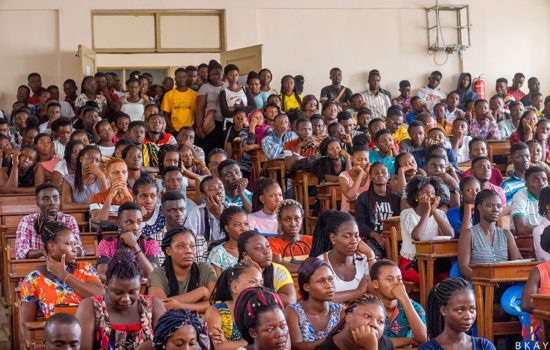
Previous Extension/Re-Opening Of Registration For First Semester 2021/2022
Aim of Project:
The aim of this project is to transform water hyacinth into an energy resource for the sustainable development in communities along the Volta river. To achieve this, it is proposed that the project adopts and adapts the remote sensing technique of the Weija Lake project to estimate the coverage area to determine the quantity of water hyacinth on the Volta River. It is also proposed that a medium-scale plant be set-up to convert the water hyacinth into energy through biogas production for electricity generation.
Furthermore, the effluent from the anaerobic degradation process can be transformed into fertilizer for crop farming in these communities.
It is believed that if the project is successfully completed, a sustainable direction would be identified to manage water hyacinth. Additionally, since the community will be engaged, it would provide a source of employment for the rural folks. Ultimately, the socio-economic,health and environmental challenges caused by the aquatic weeds will be mitigated in a sustainable manner.
Duration
June 2020 – May 2022
Research Support: German Federal Ministry of Education and Research (BMBF)
Partnering German Research Institute: Hamm- Lippstadt University of Applied Sciences
KTU Project Team:
Dr.-Ing. Richard Arthur (Coordinator)
Dr. Clement Nyamekye
Dr. Samuel Kwofie
Dr. Richard Ohene Asiedu
Dr. Regina Bekoe
Dr. Frank Dwomoh
Dr. Samuel Ofosu
Mr. Godfried Boafo
Ms. Florence Ohenewaa Appiah
Mrs. Linda Boamah
Mr. Enoch Asante
Mr. Emmanuel Okoh Agyemang
Mr. Gabriel Osei
Mr. Franklin Odoom